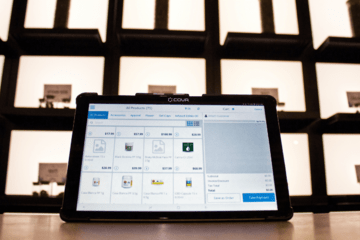
How to Give Back as a Cannabis Company
Published on 10/28/20
We believe cannabis businesses have the privilege and responsibility to give back to the communities in which they operate. Community involvement has the potential to benefit your staff, your company, your customers, and even people not directly associated with your business. Needless to say, there are plenty of reasons why community involvement should be a key part of your company's mission. While businesses in the cannabis industry do have barriers, there are still plenty of cannabis companies that donate to charitable causes by being creative and giving more than just money.
The Difficulties of Donating as a Cannabis Company

Marijuana is still a federally illegal Schedule I drug. This means that, despite cannabis being widely accepted in public opinion, fully legalized in 11 states, and medicinally legalized in 33 states, there are still plenty of negative social stigmas related to cannabis. In addition to social stigmas, marijuana's federally illegal status continues to create roadblocks for cannabis companies, both of which result in difficulties when trying to donate to non-profits and other charitable causes.
Some organizations simplydon't want to accept money from cannabis companies, while others are unable to accept any donations because of their tax-exempt filing status. Many non-profits are filed as 501(c)(3) tax-exempt organizations, a difficult status to obtain that comes with a large list of rules and regulations that must be followed. By accepting money from companies related to the production and sale of a federally illegal drug (marijuana), they put themselves at risk of losing their tax-exempt status. Due to this risk, along with the risk of losing additional federal funding, charitable organizations often do not accept any donations from cannabis-related companies.
How Cannabis Companies Can Give Back
Until marijuana is no longer classified as a Schedule I drug and is federally legal, cannabis companies will likely continue to find it difficult to donate to charitable organizations. Fortunately, there are still workarounds and different ways cannabis companies can give back to their communities.
Donate Items, Not Money
Another reason it's difficult for cannabis companies to donate money is that most banks will not touch their money (again, this is because of marijuana's controversial, federally illegal Schedule I status). Fortunately, in a lot of situations, money isn't the only thing charitable organizations need. Oakland-based Bloom Farms is one of many companies that donate to charity through a community-forward mission. For every cannabis product they sell, Bloom Farms donates a meal to a local food bank. When looking to donate, simply research local non-profit organizations in your community and become part of a growing list of companies that donate to schools, charities, and other non-profit organizations.
Volunteer

Money and other goods aren't the only things we can give back to our community. Volunteering our time is a great show of support and is easy to set up. Since there are no financial transactions involved, organizations will be much likelier to accept your company's support. However, even if an organization doesn't want to be associated with a marijuana-related company, you can always donate your time as an individual. Volunteering is also a great team-building exercise that promotes company-wide community involvement. You can build morale by offering a certain amount of paid volunteer hours each year, or you can turn volunteering into an out-of-work social opportunity. There are plenty of great organizations that need volunteers' time just as much as they need money. Local food banks, community centers and gardens, and elderly homes are a great place to start.
Work With Local Community Organizations
As a member of the community, your company has the ability to accelerate other businesses and advocate on their behalf. Non-profits might not be able to accept donations, but that doesn't mean you can't advertise their organizations and the people they serve. Once you have their permission, you can post about local charities on your social media, put up advertisements in your store, and work with your staff to individually donate and volunteer. Get creative, work with local community organizations to better their reach, and look for new ways to promote volunteerism and charity throughout your community.
Create Your Own Nonprofit
If you have the resources to make a next-level commitment to your community, you can create a cannabis non-profit. As a cannabis-related organization, you won't benefit from a 501(c)(3) tax-exempt status or federal funding, but you can still operate through self-funding and volunteers. Fortunately, there are plenty of founded cannabis non-profits you can look to for direction - like NORML, Focus, and the Green Soul Foundation. While many of these non-profits work within the cannabis industry to better minority groups, progress legalization, and provide educational material, a cannabis non-profit can also turn its attention toward a more general cause or immediate concern. Whatever you choose to do, setting up a non-profit is a big deal and a great way to help give back and pay it forward.
Create an Inclusive Brand

Even if you can't create a non-profit, you can still help your community by building a cannabis brand that puts philanthropy first. Support other local companies that are run and operated by underrepresented community members. Outwardly show your support of marginalized groups, hire a diverse staff, promote social justice, and provide your team with paid volunteer hours and opportunities. We are all working toward a culture that sees the cannabis industry as a legitimate source of jobs, change, and community involvement. Shape your company's brand to reflect your core values and spread community activism through your message.
Have you had experience with cannabis companies that donate to charity? Comment below, tell us your story and give insight into other ways we can all help give back to our communities.


















